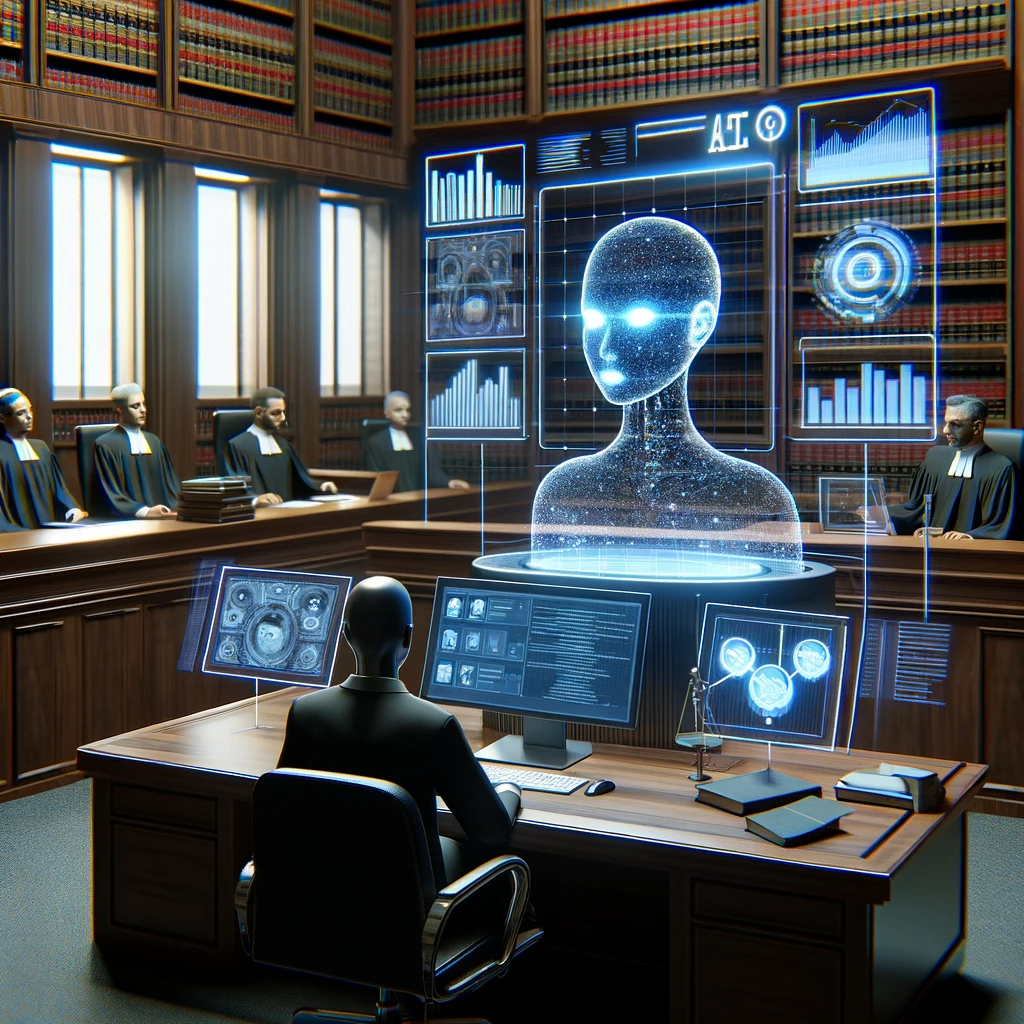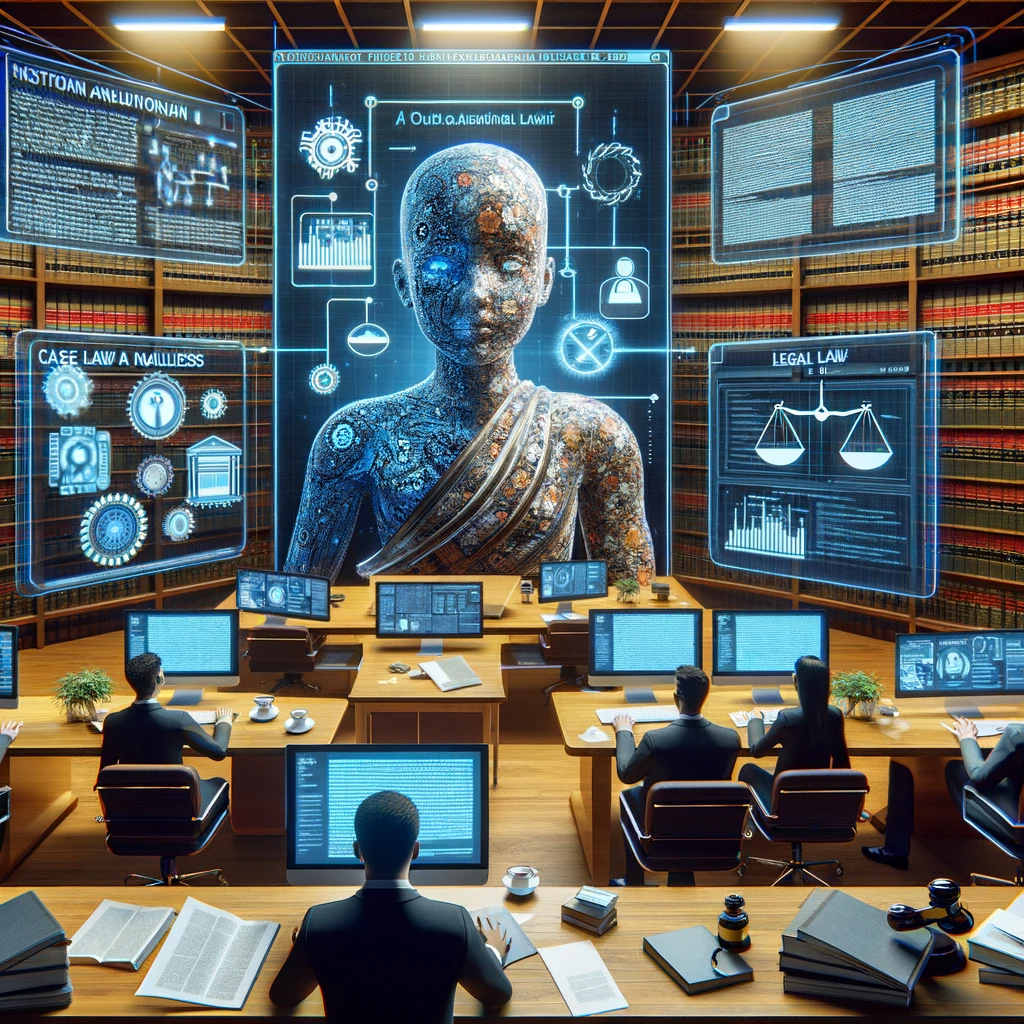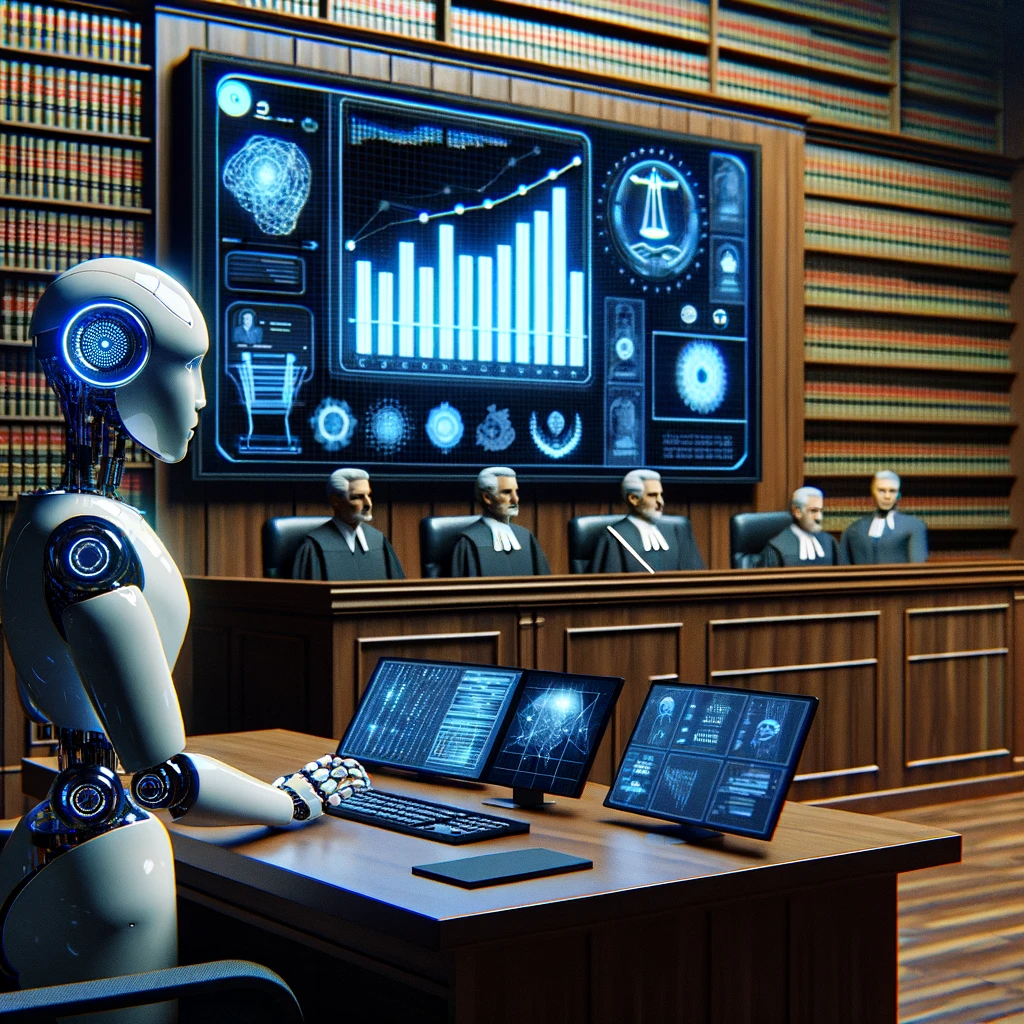The legal system, a cornerstone of society, is designed to provide justice, protect individual rights, and resolve disputes fairly. However, it is no secret that the legal landscape is riddled with challenges, from backlogged court dockets to disparities in access to justice. Enter Artificial Intelligence (AI), a disruptive force with the potential to revolutionize legal proceedings. The question that looms large is whether AI can be the catalyst for reducing bias and creating a more equitable legal system.
The Legal System: Challenges and Inequities
Historical Context of Legal Inequities
To understand the present, we must acknowledge the past. Legal inequities have deep historical roots, with discriminatory laws and practices that have persisted throughout history. From unequal treatment based on race to gender bias in legal proceedings, the legal system has not always lived up to the ideal of fairness.
Present-Day Challenges in the Legal System
Contemporary legal systems grapple with a multitude of challenges. Overburdened court dockets often lead to delays in justice. Disparities in legal representation mean that not everyone has equal access to quality legal counsel. Furthermore, the impact of implicit bias on judicial decisions cannot be ignored. These issues highlight the pressing need for innovation and reform within the legal sector.
The Need for Innovation and Reform
The legal system stands at a crossroads. While deeply rooted in tradition, it must adapt to the realities of the 21st century. Innovation and reform are imperative to address long-standing issues and ensure equitable access to justice. It is within this context that AI emerges as a potential game-changer.
Understanding AI in the Legal System
Definition and Scope of AI in Legal Proceedings
Before delving into AI’s potential, it is essential to define its scope within the legal field. AI encompasses a wide range of technologies and applications, from automated document review to AI-driven chatbots providing legal information. Each of these applications contributes to reshaping legal proceedings.
Types of AI Applications in the Legal Field
AI’s influence extends beyond a single application. Legal professionals now have access to AI-driven tools that can assist with legal research, contract analysis, predictive analytics, and even document generation. These applications offer efficiency, accuracy, and new opportunities for innovation within the legal domain.
The Promise of AI in Addressing Legal Disparities
AI holds a promise that goes beyond streamlining processes. It has the potential to address the systemic disparities that have plagued the legal system. By leveraging AI’s capabilities, legal professionals can make data-driven decisions, access insights from vast datasets, and enhance the fairness of legal proceedings.

The Role of AI in Reducing Bias
Identifying and Addressing Bias in Legal Decision-Making
Bias is a persistent challenge in legal decision-making. It can manifest in various forms, from judges’ and legal professionals’ biases to disparities in sentencing outcomes. To mitigate bias, it is essential to first recognize and understand these biases that exist within the system.
How AI Can Assist in Bias Mitigation
AI offers a set of tools to assist in mitigating bias within the legal system. Machine learning algorithms can analyze vast datasets to identify patterns and trends, while natural language processing enables unbiased analysis of textual information. Additionally, algorithms can be designed with transparency and fairness in mind, allowing for greater control over potential bias.
AI and Fairness in Legal Proceedings
Ensuring Equitable Access to Legal Representation
Equitable access to legal representation is fundamental to a just legal system. AI can play a role in ensuring that everyone has access to appropriate legal resources. It can connect individuals with legal services, provide legal information, and, in some cases, offer representation for those who may otherwise be underserved.
AI in Legal Research and Case Preparation
AI-driven tools have the potential to revolutionize legal research and case preparation. These tools can quickly sift through vast volumes of legal documents, extract relevant information, and provide valuable insights to legal professionals. This efficiency levels the playing field for attorneys and litigants alike.
The Use of AI in Dispute Resolution and Alternative Dispute Mechanisms
AI is not limited to traditional courtroom proceedings. It can also be applied to alternative dispute resolution mechanisms such as mediation and arbitration. AI-driven systems can facilitate efficient, cost-effective dispute resolution while ensuring that the process remains fair and impartial.
Challenges and Ethical Considerations
Technical Challenges in AI Implementation
While the promise of AI is significant, it is not without its technical challenges. Issues such as data quality and bias in training data must be addressed to ensure that AI systems operate effectively and without unintended bias. Additionally, the interpretability and explainability of AI decisions are crucial for legal professionals and those affected by legal outcomes.
Ethical Dilemmas in AI-Driven Legal Proceedings
The introduction of AI into the legal system raises ethical dilemmas. Concerns about privacy, data protection, and the potential for algorithmic decision-making without human intervention must be carefully considered. Striking the right balance between the efficiency gains AI can provide and the need for human oversight and accountability is a central challenge.
Real-World Applications and Case Studies
Highlighting Successful Implementations of AI in the Legal System
To illustrate AI’s tangible impact, we can look at real-world applications. AI has successfully streamlined legal research, improved contract analysis, and even assisted in predicting legal outcomes. These practical applications highlight the potential for AI to address legal disparities.
Case Studies Showcasing AI’s Impact on Bias Reduction and Fairness
Specific case studies offer deeper insights into AI’s role in reducing bias and enhancing fairness. These cases demonstrate how AI technologies are effectively addressing long-standing disparities within the legal system, providing evidence of the positive impact on legal proceedings.
The Future of AI in Legal Proceedings
Predictions and Trends in AI Adoption in the Legal Field
To envision the future, we must explore predictions and emerging trends in AI adoption within the legal field. Legal professionals and technologists predict a continued proliferation of AI-powered legal research tools, contract analysis systems, and virtual legal assistants. These innovations are expected to streamline legal processes and reduce bias further.
The Potential for AI-Driven Legal Innovation
AI-driven legal innovation extends beyond current applications. Concepts such as smart contracts and automated legal compliance systems hold the potential to reshape how legal agreements are executed and monitored. These innovations have the capacity to enhance efficiency, transparency, and fairness in legal proceedings.
The Intersection of AI, Law, and Ethics
As AI becomes more deeply integrated into legal proceedings, the intersection of AI, law, and ethics becomes increasingly relevant. Policymakers, legal professionals, and technology experts are engaged in ongoing dialogues about striking the right balance between efficiency and fairness, privacy and transparency, and human judgment and algorithmic decision-making.
User Perspectives and Public Perception
Gathering Opinions from Legal Professionals, Judges, and AI Experts
The perspectives of key stakeholders are instrumental in understanding AI’s role in creating a more equitable legal system. Legal professionals, including judges and attorneys, offer insights into the practical implications of AI in their daily work. AI experts provide invaluable technical perspectives on the challenges and opportunities in AI integration.
Public Perception of AI’s Role in the Legal System
Public perception plays a pivotal role in the adoption of AI in legal proceedings. The general public’s views on AI’s involvement in legal matters vary. Some see AI as a promising tool for reducing bias and increasing efficiency, while others raise concerns about the potential for automation to undermine the human element of justice.
The Importance of Trust and Transparency in AI-Assisted Legal Proceedings
Building trust in AI-assisted legal proceedings is crucial. Transparency in AI algorithms, clear communication about AI’s role, and mechanisms to ensure public and legal professional confidence in AI-driven legal processes are essential. Trust is the foundation upon which AI can effectively serve as a tool for fairness and justice.
The Road Ahead: Challenges and Possibilities
The Evolving Landscape of AI in the Legal System
The legal system is in a state of constant evolution. As AI adoption grows, legal education and the role of legal professionals are likely to change. Moreover, the very structure of legal institutions may adapt to accommodate AI-driven innovations. The legal landscape will continue to transform, driven by technological advancements.
Remaining Challenges and Areas for Improvement
While AI holds immense promise, challenges remain. Technical issues, such as improving AI algorithms and ensuring the quality of training data, demand attention. Additionally, equitable access to AI resources and education must be addressed to prevent disparities in AI adoption. Ethical guidelines and regulatory frameworks are vital for responsible AI development.
The Imperative of Responsible AI Development and Deployment
Responsible AI development is central to the successful integration of AI into the legal system. Ethical guidelines, regulatory frameworks, and ongoing collaboration between the legal community, technology experts, and policymakers are essential for ensuring that AI-driven legal innovation is carried out ethically and responsibly.

The prospect of AI creating a more equitable legal system is both exciting and challenging. While AI offers tremendous potential to reduce bias, enhance efficiency, and provide broader access to justice, it also presents ethical dilemmas and technical hurdles that must be overcome.
As AI continues to evolve and reshape the legal landscape, the key lies in responsible development and thoughtful integration. Collaboration between legal professionals, technology experts, policymakers, and the public is essential to ensure that AI serves as a tool for justice, fairness, and the betterment of society as a whole.
The journey toward a more equitable legal system, driven by AI, is ongoing. It is a journey that demands ongoing reflection, adaptation, and dedication to the principles of justice and fairness. As we navigate this path, we must remain vigilant, striving to harness the full potential of AI to create a legal system that truly serves all members of society.
